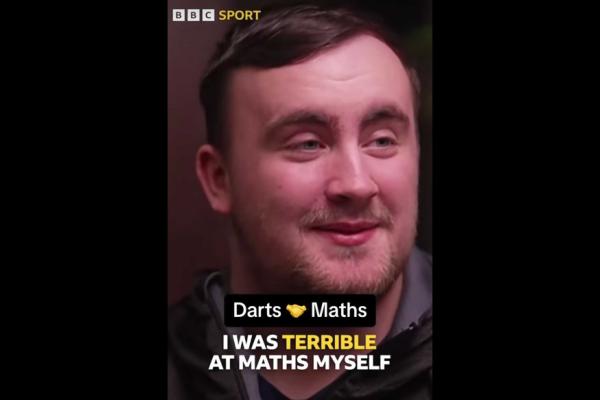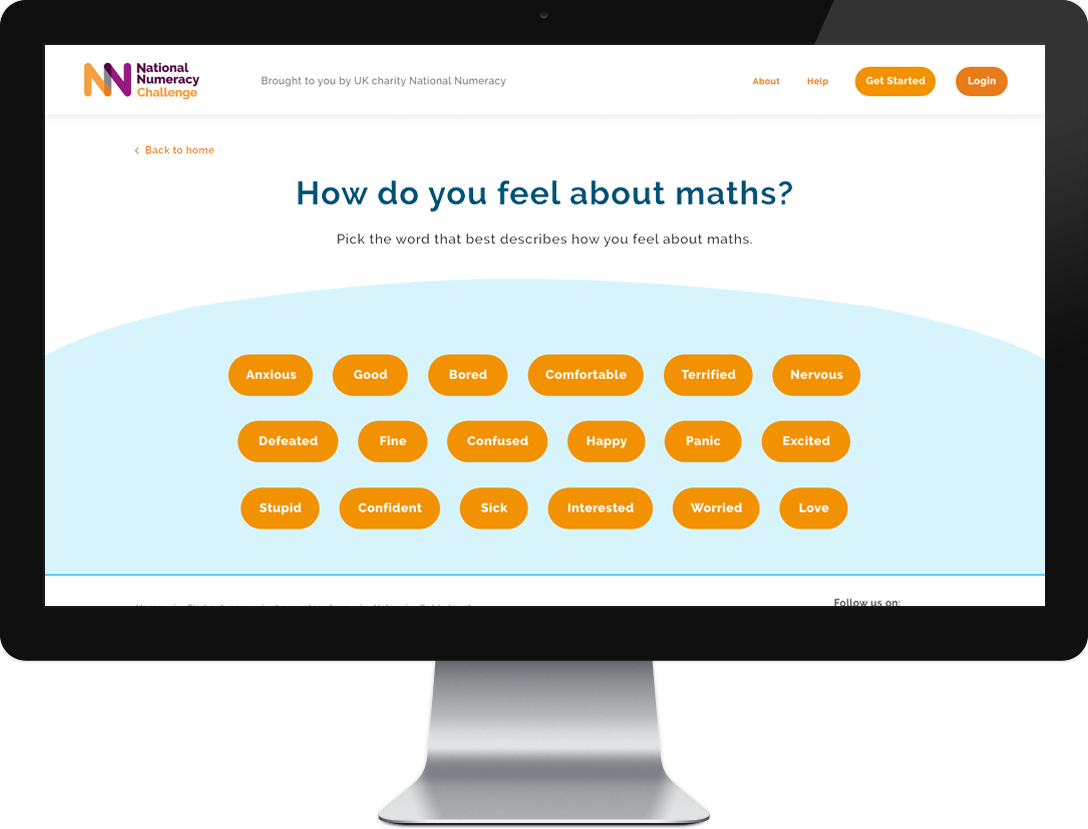Darts: what’s the aim of the game?
Each player starts with a score of 501 and tries to be the first to 'score down’ to zero. So addition, subtraction and multiplication skills all come into play during a game of darts, often at super-fast speed.
Luke Littler says practice helped him improve his darts maths
‘Treble 20’, ‘hitting a bullseye’ and the famous referee’s call of ‘180!’ are all familiar terms used in darts.
However, if you’re interested in darts but are put off by the maths skills required, take heart from the experience of Luke, 16 - who came second to Luke Humphries, 28, in this year’s World Championship final - because Luke Littler is proof that numeracy improvement is possible:
“I was terrible at maths myself,” Luke admitted to BBC Sport. “But it’s just the longer you practise, the quicker you get to know checkouts, scoring and finishing up and laying up your shots and you know what to go for. So the more you play, the more you get used to it.”
There are ways to improve your numeracy skills and confidence
Not being a genius at mental arithmetic needn’t put people off darts. You can use a calculator to work out scores and after time you may find your numeracy skills and confidence start to improve with practice.
Some of the people our charity has supported are darts players and struggled with scoring at darts in the past.
But they told us how our free online tool, the National Numeracy Challenge, helped them to improve their numeracy.
Jo was part of a darts team, but hated the mental maths involved in ‘scoring down’.
“My school experiences with maths put me off it in adulthood – if I couldn’t use a calculator for something, I wouldn’t do it,” said Jo.
“I used to play in a ladies’ darts team and each of us would take a turn at scoring and I used to dread it, I just couldn’t do it. It was on a Friday night and I would always play first because I was one of the better players, but then I would get a bit tipsy so I had an excuse not to have to score. To say that I would try and avoid maths – absolutely I would.
“It was embarrassing, everybody else could do it. They’d say: 'You need to get up and do it Jo, it will help your maths,' but it really didn’t, because it was something that was done in front of people. Everybody was watching, so if I got it wrong, everybody knew I’d got it wrong.”
Read about how Jo improved her numeracy
Stuart told us that he too struggled with ‘darts maths’.
“Some time ago I played darts for a local pub and you’ve got to do lots of calculations in your head for scoring, 10 from 20 was fine, but 16 away from 54 I was just hoping somebody would shout the score out,” said Stuart.
“My mind just went blank, I’d have a complete mental block, I couldn’t subtract those figures.”
Read about how Stuart improved his numeracy
Improved numeracy can help with darts maths and so much more!
Both Jo and Stuart went on to improve their numeracy and feel much more confidence on the oche, as well as in all sorts of other real-life situations. From bagging a bargain at the shops to helping your kids with homework, getting on with numbers is a vital skill for life.
To see how you can improve your own numeracy skills and confidence, try the National Numeracy Challenge.
Image credit: BBC Sport/TikTok






